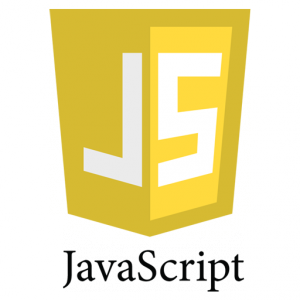
January 4th, 2013 by

Lincoln Baxter III
I don’t think we will see a “winner” of the browser-language wars any time soon, but there will be a winner. JavaScript hype is still through the roof, and with the discovery of a dynamic language in the browser actually works decently between late browsers, people are thoroughly excited; however, I’d akin this to people discovering Perl during the advent of C and C++. Does it work? Yes. Is it pretty? Not by a long shot.
Don’t get me wrong, I love Perl – I think it’s an incredibly powerful and fun language that now suffers from the bad reputation it acquired before gaining true object-oriented features – but, those who hate Perl hate it because it’s “too hard to maintain” and too “strange.” So if you want to talk about a strange language, look at JavaScript – it’s like Perl times ten. At least Perl has a consistent type inferencing and enforceable namespacing! (I think you’d have a hard time arguing that enforceable namespacing is a bad thing… global variable collisions can result in some pretty nasty bugs, particularly because it is easy to never see the downstream impact.)
Point being? As someone who has already gone through several language hypes and paradigm shifts in Computer Science (even in my relatively short 14 year experience,) JavaScript is a lot like Perl – extremely powerful, but a potential maintenance nightmare if one is not extremely diligent – and while I do like both languages, JavaScript just waiting for the next technology to come around and make it look like Perl does today: pervasive, but lacking enterprise adoption on large applications.

December 24th, 2012 by

Lincoln Baxter III

Happy holidays, I hope everyone is relaxing and having a great time with their families and loved ones. To help see out the last year, and ring in the new one, I’ve prepared a (hopefully relaxing) article on some trends we’ve seen in 2012, and what that could mean for us in the next year and years to come. So if you want to take a break from the holiday din, then head over to JAXEnter and check out my article. The technologies I discuss are Rewrite, OCPsoft’s own, and Errai, by Red Hat.
Be safe, and I’ll see you all in the new year,
~Lincoln

December 5th, 2012 by

Lincoln Baxter III

If you’ve ever looked for social-style date formatting for Java, to create timestamps like, “2 minutes from now” or “3 months ago,” [[PrettyTime]] is probably the tool you’ve ended up with, and as you might know, it supports over 25 languages and dialects – a great number to be sure. But what happens when you come across one of the over 4500 living languages that are not supported?
Well, then it’s time to do some translation, and in order to help you manage this task, we’ve created a guide to help you get through as quickly and easily as possible. When you’re done, you might even want to submit your translation back to us so that everyone else can benefit from your hard work. The guide covers this, too.
It takes only a minute or so to read the guide and get started! Let us know how you do.

September 18th, 2012 by

Lincoln Baxter III

Do you love regular expressions as much as I do?
Well even if you don’t, I am pleased to announce a new tutorial: “OCPsoft’s guide to [[Regular Expressions]].” As part of an ongoing initiative to promote awareness of regular expressions, and how they are used both as a general technology, but also specifically as applied to the Java programming language, we will be continuing to add new example-based guides to this course.
Please feel free to post questions and comments if there are topics or specific problems that you would like to see addressed. We will do our best to answer your questions and share the knowledge!
Check out [[Regular Expressions|the tutorial]].
Enjoy!
~Lincoln

August 22nd, 2012 by

Lincoln Baxter III
Java EE is already the perfect solution for complex business/enterprise systems and provides all the tools and foundations required to deliver scalable, performant applications for a wide variety of customers and clients.
But how does the end user experience stack up? How easy is it to navigate through your Website? Is your code full of nasty navigation logic? Are your links clear, transparent, and informative? Do you find yourself adding ‘?query=parameters’ in order to serve dynamic content from your application? Can you ensure that you are not leaking information in your URLs, and that your applications are secure from URL-based attacks? Are your old links making it difficult to migrate or integrate a legacy application to a new one?
These are all things that URL rewriting can help with, and if you are uncertain about any of these questions, this talk is for you. Watch this session from JAXConf 2012 and see what’s possible with the power of URL-rewriting.
For more information on the [[Rewrite]] project, visit the project homepage at [[Rewrite | OCPsoft]], and be sure to check out all of the other cool Java open-source projects while you’re here.

August 21st, 2012 by

Lincoln Baxter III
Getting started with Hibernate and JPA (Java Persistence API) can be tricky, but this step-by-step tutorial explains exactly what needs to be done to set up your application to use this technology. This chapter covers very basic mapping and persistence.
When we are finished with this tutorial, we will have a standalone Java SE application with database connectivity. This article is part of a series:
Guide to Hibernate Annotations.

August 9th, 2012 by

Team
OCPsoft Founder Lincoln Baxter, III was interviewed by ZeroTurnaround, the makers of JRebel, about his take on developer productivity, and new rapid development tools from JBoss.
Featured technologies in this interview are OCPsoft’s SocialPM, and also Errai (from JBoss,) a GWT-based web-development framework for creating highly distributed and responsive web applications. Read the interview on the ZeroTurnaround website.

June 14th, 2012 by

Team
Lincoln Baxter, III (OCPsoft Founder) shared his insight on the state of technology today and where future innovation is likely to occur. We have seen many advancements in technology over the last several years, but our lives remain complex and we face many of the same problems that have plagued the industry for decades. What are these problems? How will they be addressed? What can we get excited about?
Read the full article on JBoss.org » (Link through DZone.)

April 25th, 2012 by

Lincoln Baxter III
Ever experience a wonderfully fantastic “green bar!” in Eclipse, NetBeans, or IntelliJ, only to find that when you run your ANT or Maven build, you get an equally catastrophic build failure? If you have, you’ve probably tried what most of us tried, and you’ve attempted to increase Maven’s heap capacity using MVN_OPTS:
export MAVEN_OPTS="-Xmx1024m -XX:MaxPermSize=512m" |
export MAVEN_OPTS="-Xmx1024m -XX:MaxPermSize=512m"
That would normally work fine if the error we received is something like:
java.lang.OutOfMemoryError: PermGen space |
java.lang.OutOfMemoryError: PermGen space
Unfortunately, though, this doesn’t solve the problem because Maven actually uses a separate JVM for each JUnit test execution! So while we have successfully enabled Maven to be a hog, our tests are still running in a constrained environment. What we need to do instead is increase the memory capacity of the Maven Surefire launcher:

April 18th, 2012 by

Craig Schwarzwald
Close your eyes, take a deep breath, then repeat after me: “Trying to test any Enterprise application by manually executing a test suite is just preposterous, and an application with any complexity at all quickly becomes too burdensome to test without automation.”
Now repeat it a hundred times – still think you can live without automation?
In
part one we set up our tools,
part two we did project configuration, and in
part three we ended with a fully functional application; however, now that you’ve become familiar with the Red Hat tools and Facebook API, it’s time we get to a topic we ideally should have started with in the first place:
TESTING!



 Lincoln Baxter III
Lincoln Baxter III 



